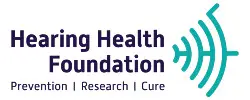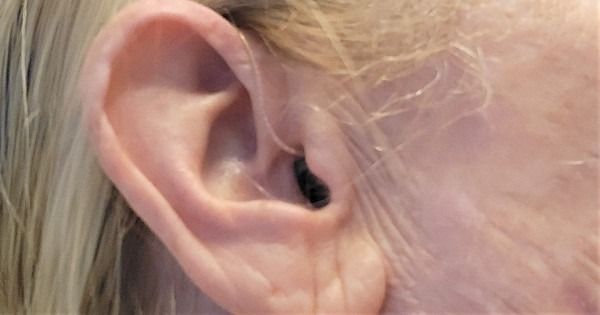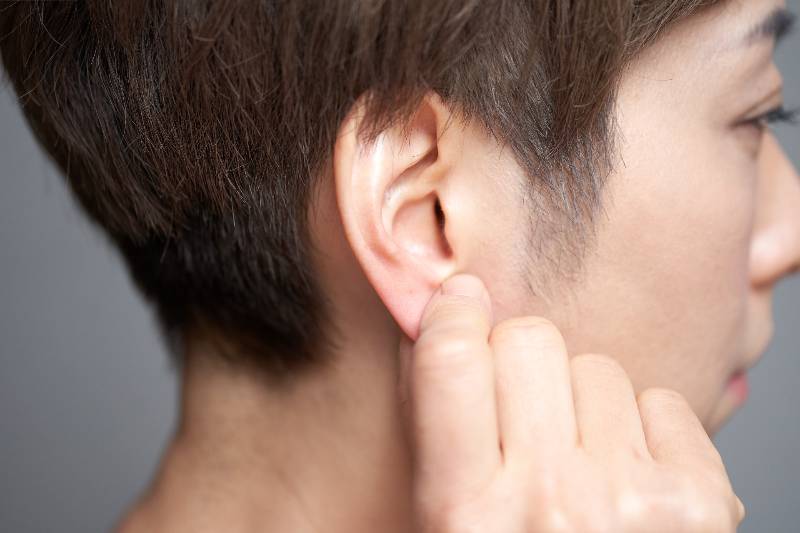Introduction
Caring for someone with conductive hearing loss can be a challenging and emotional journey. It’s important for caregivers to have accurate information and the right tools to support their loved ones effectively. In this blog post, we will explore various aspects of conductive hearing loss and provide valuable insights for adults caring for someone with this condition.
AMZ-Lexie Lumen Self-Fitting OTC Hearing Aids
Experience the Ultimate Sound Quality with Lexie Lumen self-fitting OTC hearing aids. These remarkable devices utilize dual microphones to deliver crystal clear sound, immersing you in a world of auditory excellence. Say goodbye to communication struggles in public spaces or on phone calls, as our Telecoil functionality directs speech directly to your hearing aids via an induction loop system. Rediscover the joy of hearing with unmatched clarity and precision.
Embrace an Active Lifestyle with Lexie Lumen hearing aids. Our cutting-edge sweatproof technology, including Nano coating, safeguards against moisture damage, allowing you to wear your hearing aids during outdoor activities like walks, runs, and open-air events. With Lexie, you can live life to the fullest without compromising on the quality or lifespan of your devices. Don’t let hearing loss hold you back—experience the freedom of superior hearing with Lexie Lumen self-fitting OTC hearing aids.
Debunking Myths About Conductive Hearing Loss
Conductive hearing loss is a condition that affects the transmission of sound waves through the outer or middle ear. Unfortunately, there are several myths and misconceptions surrounding this type of hearing loss. Let’s debunk some of the common myths to help you gain a better understanding.
Myth #1: Conductive hearing loss is permanent. Fact: Unlike sensorineural hearing loss, which is often permanent, conductive hearing loss can be temporary or treatable. In many cases, it is caused by factors such as earwax buildup, fluid in the middle ear, or a blockage in the ear canal. Once the underlying cause is identified and addressed, the hearing loss can be resolved.
Myth #2: Hearing aids are the only solution for conductive hearing loss. Fact: While hearing aids can be beneficial for certain cases of conductive hearing loss, they are not the only solution. Depending on the cause of the hearing loss, treatments may include medical intervention, surgical procedures, or the use of assistive listening devices. It’s essential to consult with a hearing healthcare professional to determine the most appropriate course of action.
Discussing Your Conductive Hearing Loss Diagnosis with Loved Ones
Receiving a conductive hearing loss diagnosis can be overwhelming, not just for the individual with the condition but also for their loved ones. It’s crucial to communicate openly and effectively about the diagnosis to ensure proper support and understanding.
Start by choosing the right time and place for the discussion. Find a quiet and comfortable environment where you can have an uninterrupted conversation. Express your concern and empathy while explaining the diagnosis, emphasizing that conductive hearing loss is a common condition that can be managed.
Encourage your loved ones to ask questions and address any concerns they may have. Provide them with educational resources and invite them to join you in appointments with hearing healthcare professionals. By involving them in the process, they can better understand the challenges you face and offer the necessary support.
Managing Your Expectations After a Conductive Hearing Loss Diagnosis
After receiving a conductive hearing loss diagnosis, it’s essential to manage your expectations and approach the condition with a positive mindset. Understanding what to expect can help you navigate this new chapter more effectively.
Accept that there may be limitations in certain listening situations. Conductive hearing loss can impact the ability to hear in noisy environments or over long distances. Be prepared to make adjustments and explore assistive listening devices that can enhance your hearing experience in challenging situations.
Additionally, be patient with yourself as you adapt to any recommended treatments or devices. It takes time to acclimate to hearing aids or other assistive devices and learn how to optimize their use. Practice active communication strategies, such as maintaining eye contact and asking for repetitions when necessary, to improve your ability to understand conversations.
FAQ – Hearing Loss: Learn what you need to know
Second Opinions in Conductive Hearing Loss: When and Why to Seek Them
Seeking a second opinion is a common practice in healthcare, and it can be particularly beneficial when dealing with a diagnosis of conductive hearing loss. Here are some situations where seeking a second opinion may be warranted:
Uncertainty about the diagnosis: If you have doubts or concerns about the accuracy of your initial diagnosis, seeking a second opinion can help provide clarity and ensure you receive the most appropriate treatment plan.
Complex or severe cases: Conductive hearing loss can stem from various underlying causes, some of which may be more complex or require specialized treatment. In such cases, obtaining a second opinion from an expert in the field can offer valuable insights and alternative treatment options.
Lack of improvement: If your current treatment plan or intervention does not yield the desired results or if you experience persistent symptoms, consulting another hearing healthcare professional can provide alternative perspectives and potential solutions.
Remember that seeking a second opinion does not mean dismissing your initial diagnosis or healthcare provider. It is a proactive step to ensure you have explored all available options and are making informed decisions about your hearing health.
Tinnitus: why it’s still such a mystery to science
Choosing the Right Hearing Healthcare Professional for Conductive Hearing Loss
When it comes to managing conductive hearing loss, finding the right hearing healthcare professional is crucial. Here are some factors to consider when selecting a professional:
Expertise and qualifications: Look for professionals who specialize in treating conductive hearing loss and have relevant experience in the field. Check their credentials, certifications, and affiliations with reputable organizations.
Range of services: Consider the range of services offered by the professional. Do they provide comprehensive evaluations, a variety of treatment options, and ongoing support? A provider who offers a holistic approach to hearing healthcare can better meet your needs.
Communication and rapport: Building a good rapport with your hearing healthcare professional is essential for effective communication and personalized care. Choose someone who listens attentively, explains treatment options clearly, and addresses your concerns with empathy.
In conclusion, caring for someone with conductive hearing loss requires understanding, open communication, and the right professional support. Debunking myths, discussing the diagnosis with loved ones, managing expectations, seeking second opinions when necessary, and choosing the right hearing healthcare professional are all essential steps in this journey. By equipping yourself with accurate information and supportive strategies, you can provide the best possible care for your loved one and help them navigate their hearing loss with confidence.
Conclusion
In this blog post, we explored various aspects of conductive hearing loss, aiming to provide valuable insights and support for adults caring for someone with this condition. We debunked common myths surrounding conductive hearing loss, emphasizing that it can be temporary and treatable in many cases. We discussed the importance of discussing the diagnosis with loved ones, providing guidance on initiating open and empathetic conversations. Managing expectations after a conductive hearing loss diagnosis was addressed, highlighting the need for patience, adaptation, and active communication strategies. We also touched upon the topic of seeking second opinions in complex cases and the significance of choosing the right hearing healthcare professional. By considering these factors and implementing appropriate strategies, caregivers can play a crucial role in supporting individuals with conductive hearing loss on their journey to improved hearing health.








